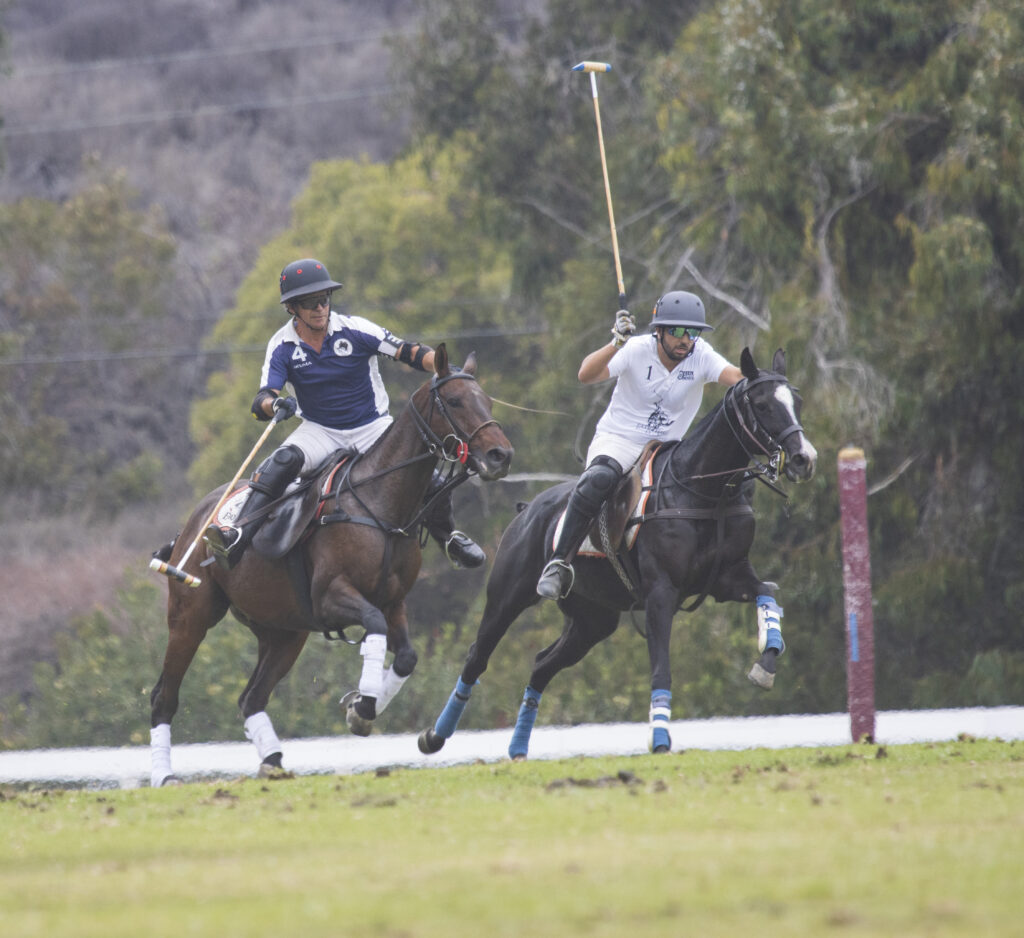
Hoofbeats pounding in their ears, snorting breaths from the horses as they gallop over the field with their riders, metal bridle pieces jingling with every stride.
And there is Ernie Ezcurra, leaning over the saddle just 3 feet away from the ground, polo mallet poised in the air, ready to send the little white ball hurtling across the field.
Players are ranked on a scale of -2 to 10, and with a 3-goal handicap, he is the highest ranked player on the field at the Will Rogers Memorial Tournament Championship Match at the Will Rogers Polo Club in Pacific Palisades.
“What characteristics make a great polo player? Somebody that is smart, fearless, and most of all, a great rider,” Ezcurra said.
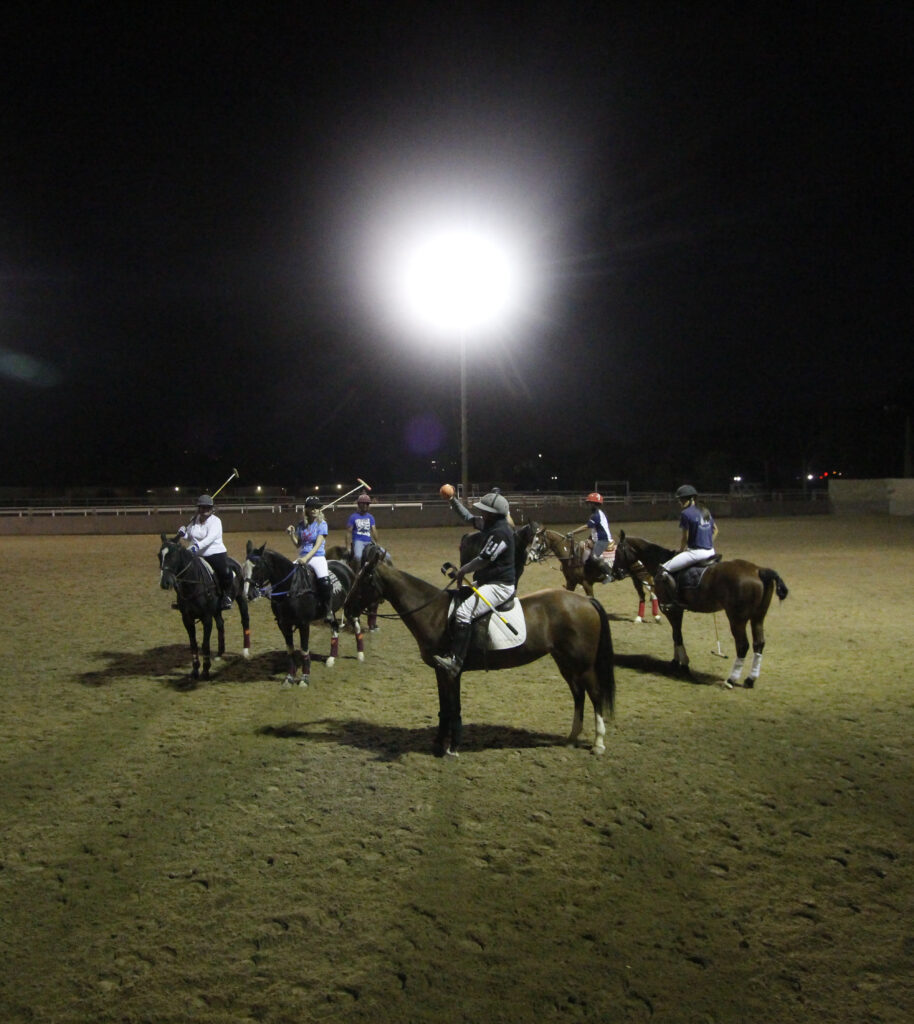
Originally studying and working in Argentina to be a journalist, Ezcurra was offered a job working with green horses and came to the realization that horses were the only way to go. Why take the path to be a journalist when horses were what he enjoyed working with?
His polo career in the United States started in Indio, Calif., in late 2002 at 23 years old. Before being offered a job in May 2016 by Hannah Taylor, who owns HYT Polo, he worked at various polo barns in California, Florida and New York.
Club pro, certified polo instructor, barn manager—Ezcurra wears many hats. Elise Markell, Ezcurra’s partner and an amateur polo player who works in the entertainment industry, talked about his role at HYT Polo. “He does anything that’s asked of him. Honestly, no job is too small for him. We’re a small organization, and he trains the horses, he deals with clients, teaches the lessons, he plays.”
Paige Baker, a dressage trainer based in Los Angeles, recently began taking polo lessons with Ezcurra and enjoyed her time learning with the polo ponies.
“When I was taking that private lesson, at first we were just practicing hitting the ball, and then we decided to do a little scrimmage, and as soon as we picked up the pace, and really got in the game, that horse got amped up and he was ready to go.” said Baker. “He was like, ‘This is what I’m going for. I know what my job is, like, let me have at it.’ So, they have fun with it too.”
Some of Ezcurra’s favorite memories of the sport involve his brothers. In 2007, with his brother Julio, also a professional polo player, they competed at Mashomack Polo Club in Pine Plains, N.Y., and were undefeated in the 8-goal tournaments.
“It’s like a special bond when you play with your brothers,” he said. “It’s like you give it all for each other.”
Ezcurra continues to dream of a future in polo not just for himself, but for his polo ponies as well.
“My dream will be to have the horse that I trained and actually taught how to play, play in the Argentine Open,” he said. “Not myself, but sell it to someone that is competing there.” The Argentine Open is one of the biggest international polo tournaments in the world.
One of Ezcurra’s favorite polo ponies is Don Gulio. “Don Gulio has been my wild card, every time that I get on him, I know I can deliver,” he said. “He is one of those that is very strong, sensitive, but has a lot of heart.”
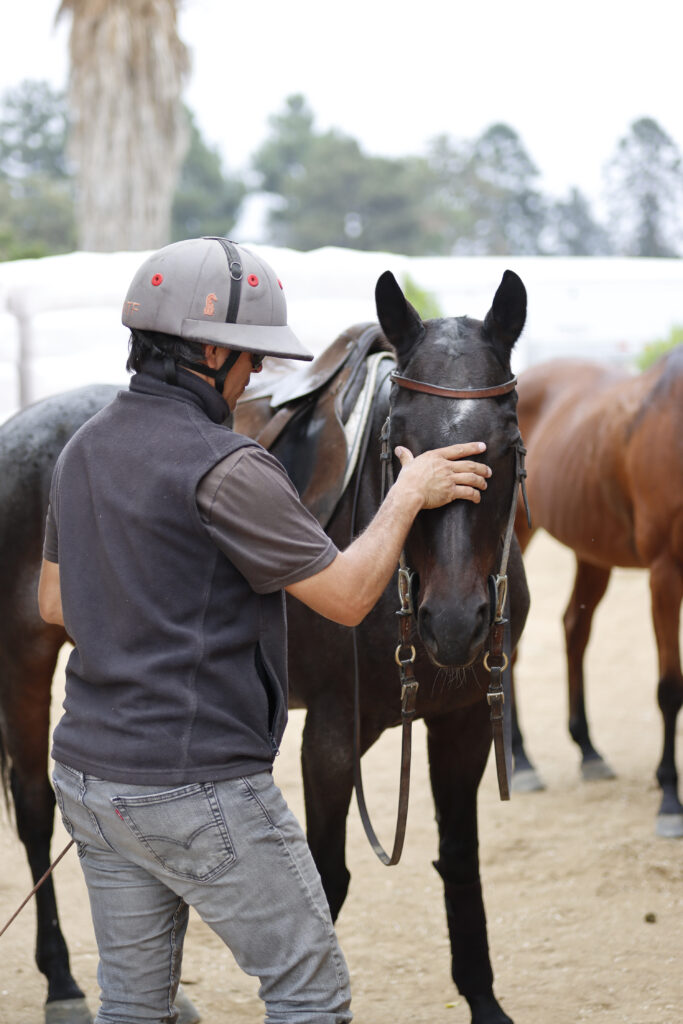
The sport takes a toll on a player’s body. Ezcurra is happy to continue playing polo for fun into old age—but not as a professional. When reminiscing about the future, he plans to take a step back from the physical stress and demands polo puts on the body but still remain in the polo industry, perhaps as a professional umpire or club manager.
At what level players compete at depends on the amount of money they want to spend, rather than only on talent or hard work. George J. DuPont Jr., the executive director of the Museum of Polo and Hall of Fame, talks about the high price of playing polo. “It’s always been an expensive sport to play based on the horseflesh and the maintenance of the horse and the maintenance of the fields,” DuPont said. “Anybody can play this sport, but you would need to dedicate your entire life to maintaining the horses.”
Riders new to polo typically start at the coaching league level. They can then move up to pro pool, which consists of three lower level amateurs and one pro. The pro’s job is to assist the amateurs on the team. Instead of scoring goals or winning the game on their own, the pro’s job is to pass the ball to their students and help them learn how to make plays and gain field awareness. These are more affordable levels of playing.
Markell talked about the advantage of having a coach like Ezcurra. “If you play with a pro like Ernie, it’s amazing, because he is a great teacher and he really spends the time to talk to you on the field and tell you where you need to be, and in between chukkers he’ll give you tips.”
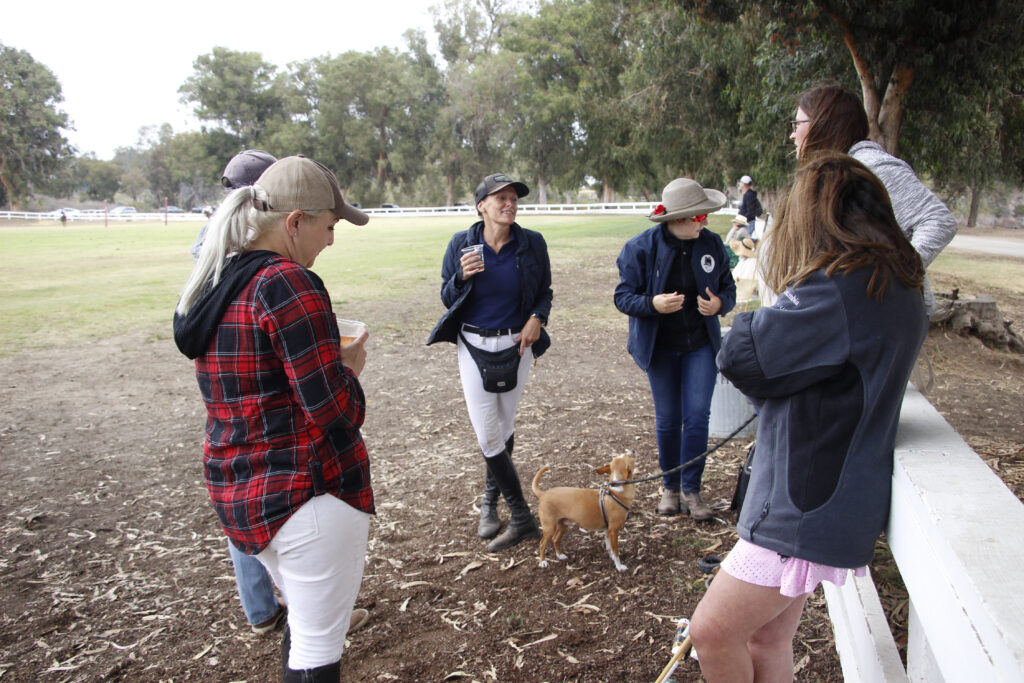
Students, supporters and clients of HYT Polo chat before a tournament at the Will Rogers Polo Club in Pacific Palisades, Calif., on Sept. 26, 2021. 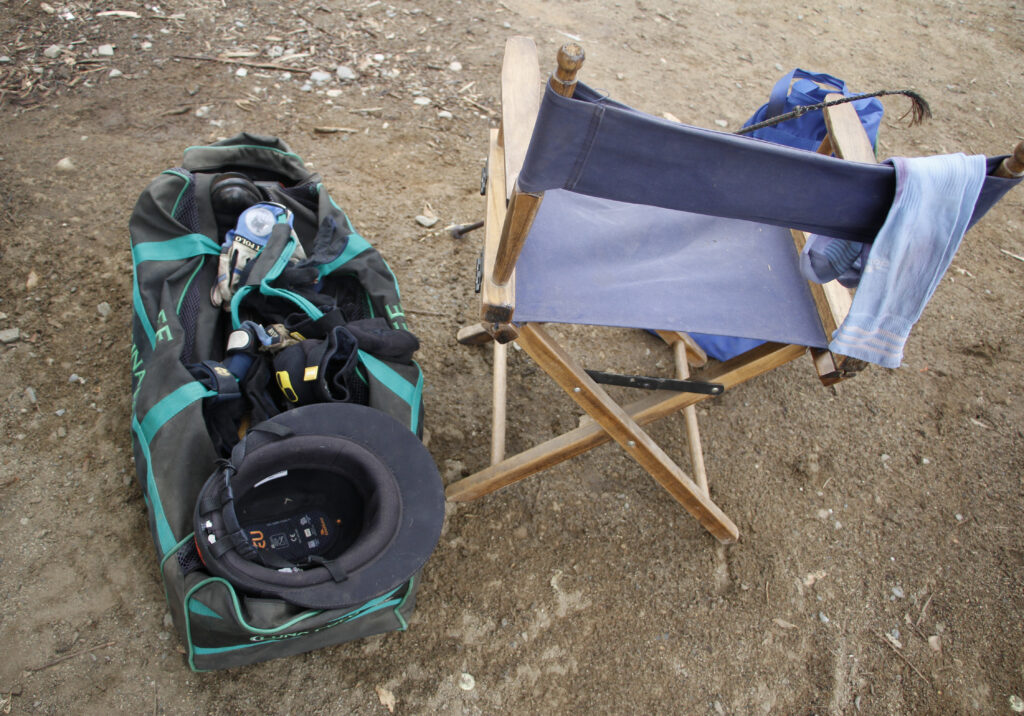
Polo equipment on the ground before a tournament at the Will Rogers Polo Club in Pacific Palisades, Calif., on Sept. 26, 2021. 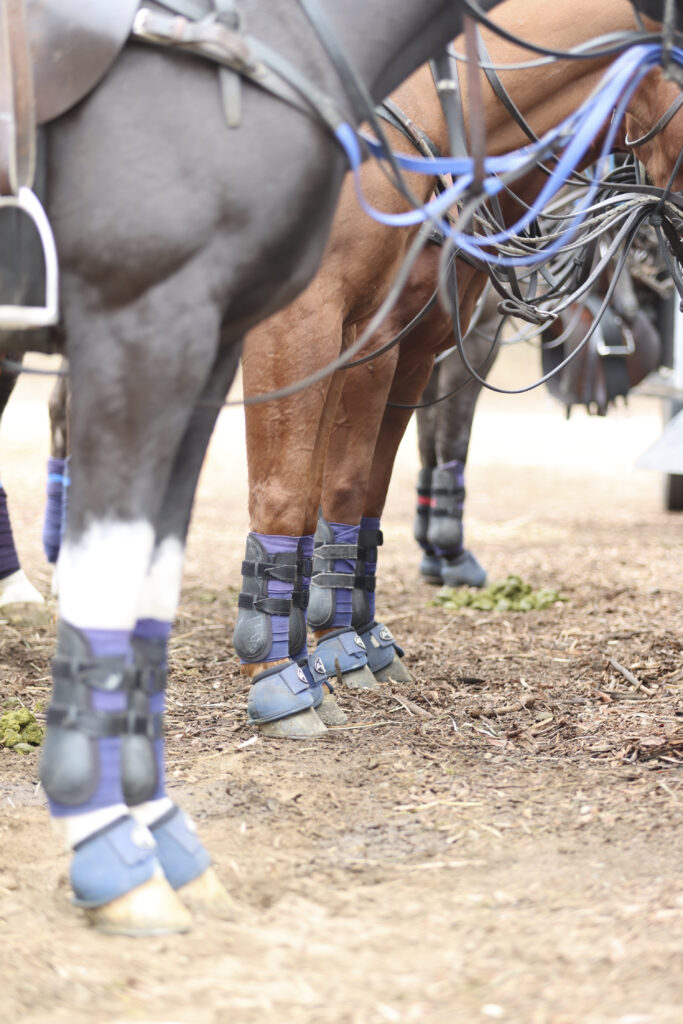
The ponies of HYT Polo stand ready and waiting for a game to start. They wear a variety of equipment—boots to protect their legs, bridles, saddles, and their tails are braided up to avoid getting tangled in anything. 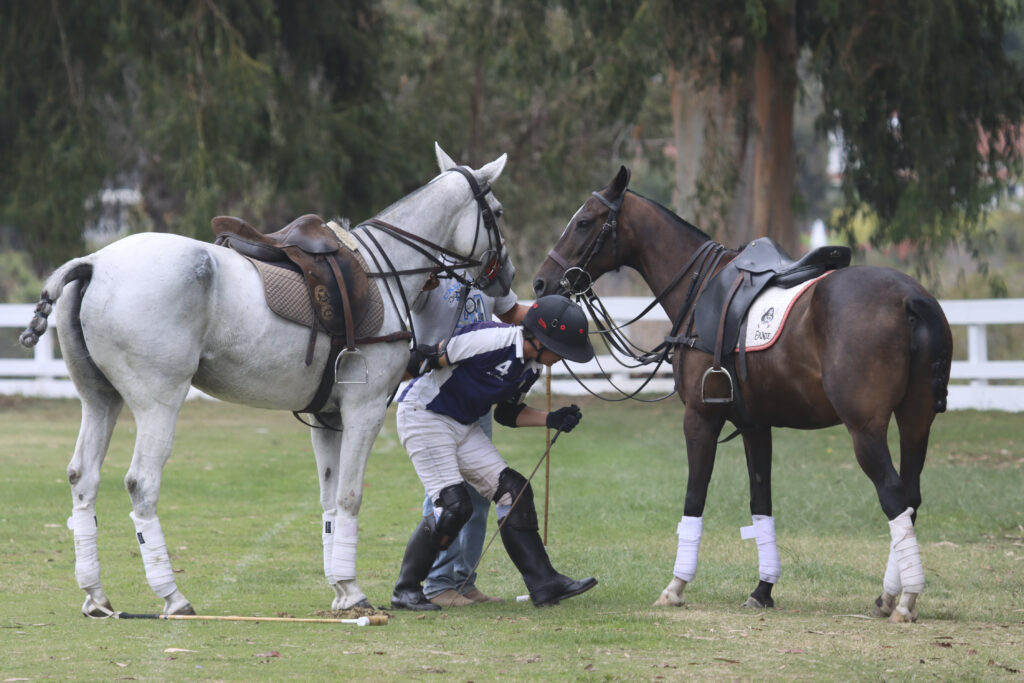
Ernie Ezcurra swaps horses during the Will Rogers Memorial Tournament Championship Match. Professional players will sometimes swap horses in the middle of one chukker rather than between chukkers to conserve their energy. Tournaments typically consist of four chukkers and each chukker is seven-and-a-half minutes. 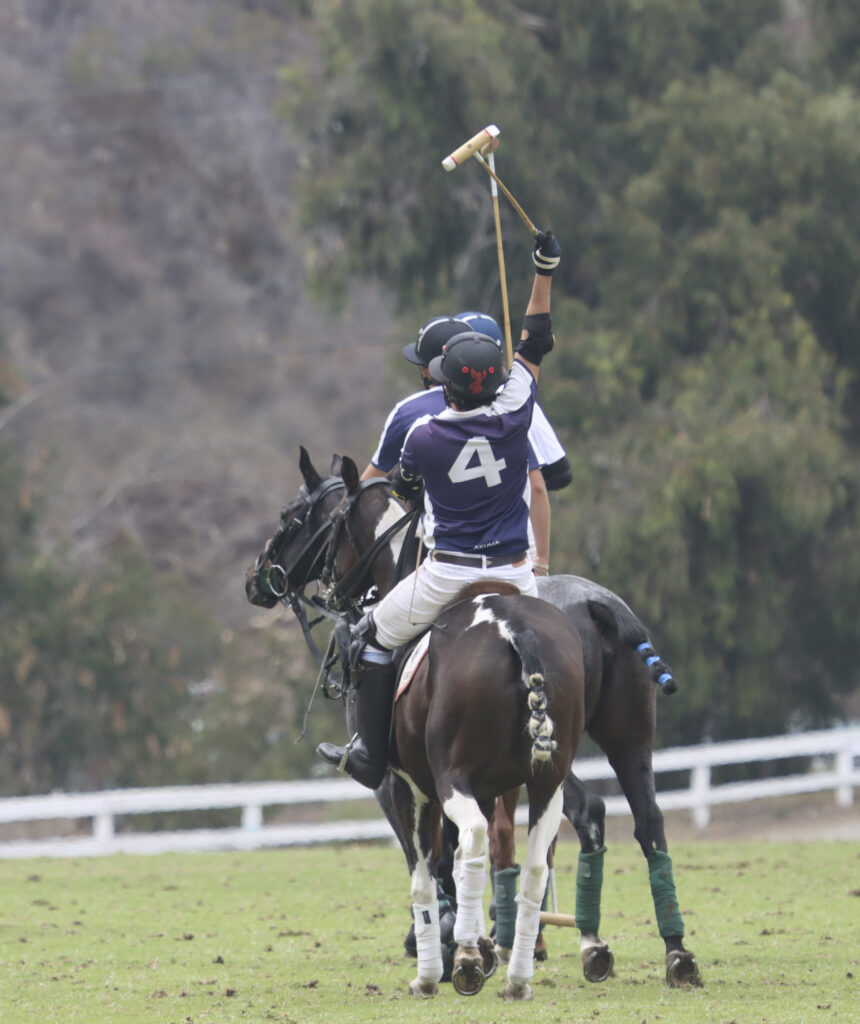
Ernie Ezcurra raises his polo mallet in the air during a tournament at the Will Rogers Polo Club in Pacific Palisades, Calif., on Sept. 26, 2021. 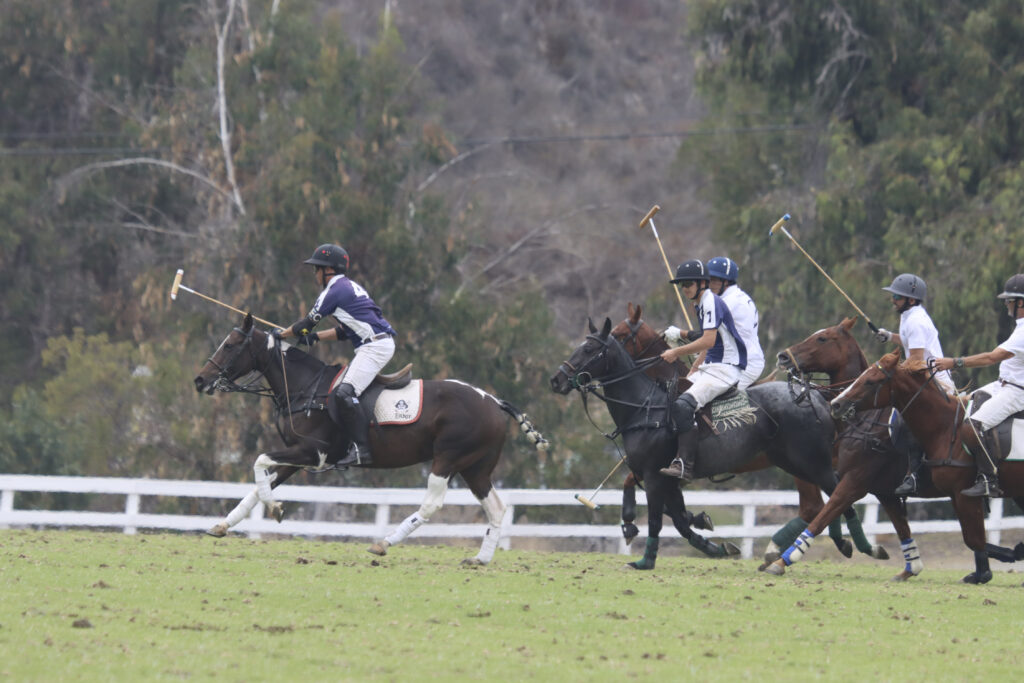
Ernie Ezcurra (left), of HYT Polo, rides across the field after the ball ahead of the rest of the riders. 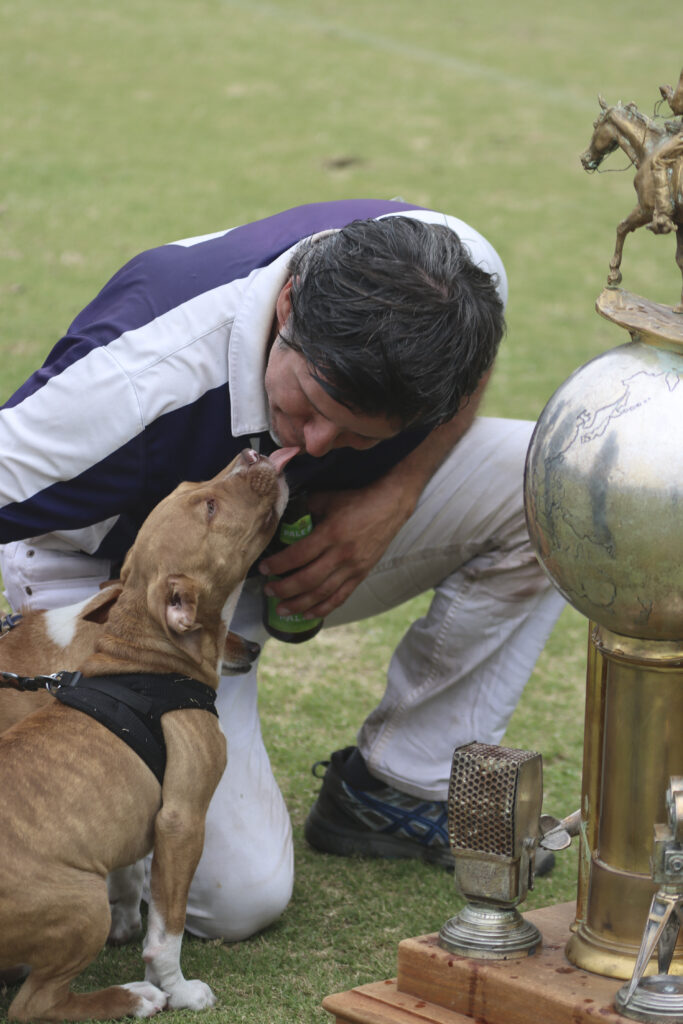
Ernie Ezcurra is greeted by his puppy Enzo after winning the Will Rogers Memorial Tournament Championship Match with his team and being presented with the trophy. The HYT Polo team has competed in this tournament for the past six years and has won it four times. The HYT Polo team won the tournament 6 – 5 1/2.
In spite of all the hardships and challenges that go into playing polo, players must embrace every aspect of the sport if they want to play the game. Markell is one of many polo players who appreciate the lifestyle they live because of the sport.
“I love the game,” she said. “I love the horses. I love everything that goes into it. I love that every day of my life is consumed by polo, even though it’s not what I do for my job. I work in the entertainment industry and I do that so that I can afford to play a little bit of polo.”



